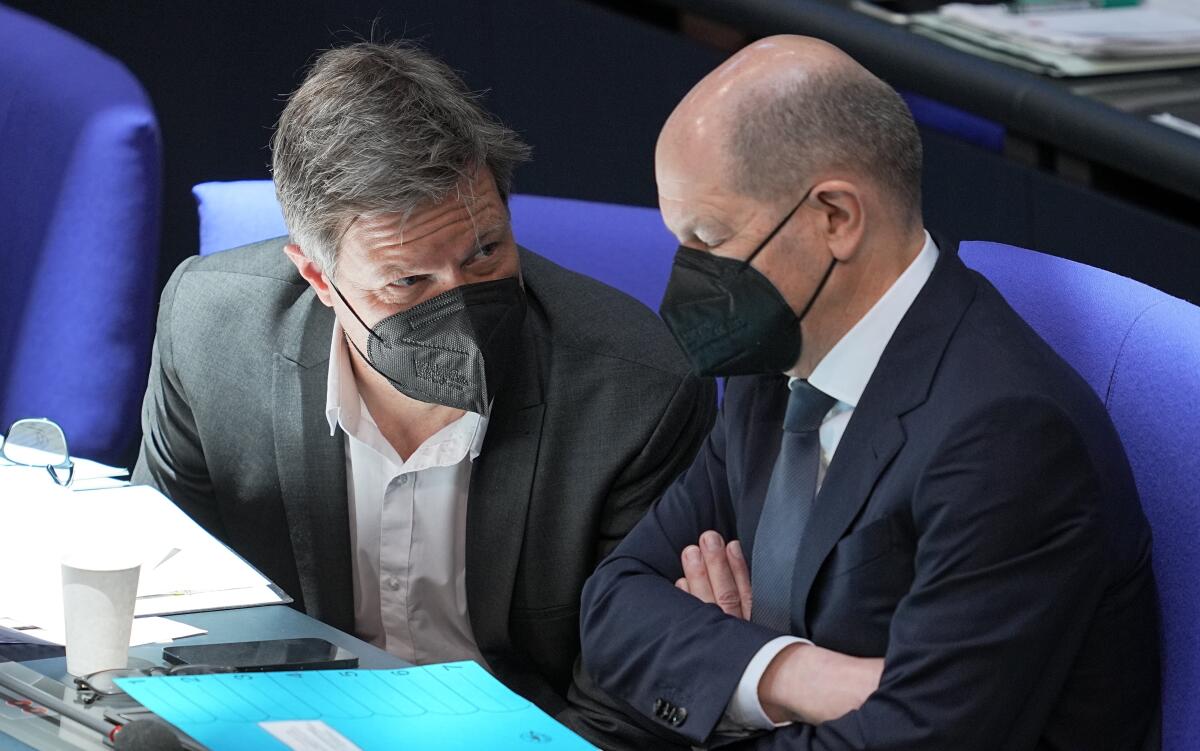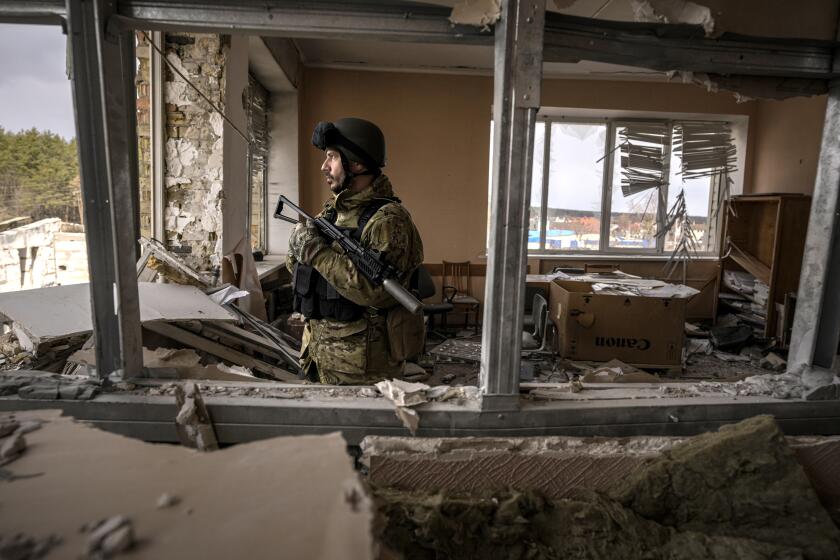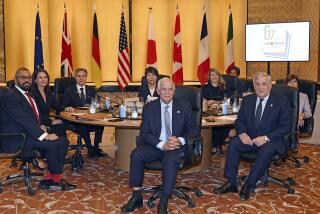G-7 countries reject Moscow’s demand that Russian gas imports be paid for in rubles

BERLIN — The organization of major economies known as the Group of 7 has agreed to reject Moscow’s demand that imported Russian natural gas be paid for in rubles, Germany’s energy minister said Monday.
Robert Habeck told reporters that “all G-7 ministers agreed completely that this [would be] a one-sided and clear breach of the existing contracts.” He said officials from France, Germany, Italy, Japan, the United States, Britain and Canada met Friday to coordinate their position and that European Union representatives also were present.
Habeck said that “payment in ruble is not acceptable and we will urge the companies affected not to follow [Russian President Vladimir] Putin’s demand.”
Putin announced last week that Russia will demand “unfriendly” countries pay for natural gas only in the Russian currency from now on. He instructed the country’s central bank to work out a procedure for natural gas buyers to acquire rubles in Russia.
New talks between Kyiv and Moscow are set to open even as both sides downplay their prospects, despite a possible Ukrainian offer of ‘neutrality.’
Economists said the move appeared designed to try to support the ruble, which has collapsed against other currencies since Russia invaded Ukraine on Feb. 24 and Western countries responded with far-reaching sanctions against Moscow. But some analysts expressed doubt that it would work.
Asked by reporters earlier Monday if Russia could cut natural gas supplies to European customers if they rejected the demand to pay in rubles, Kremlin spokesman Dmitry Peskov said in a conference call that “we clearly aren’t going to supply gas for free.”
“In our situation, it’s hardly possible and feasible to engage in charity for Europe,” Peskov said.
Asked what happens if Russia turned off the taps now, Habeck said: “We are prepared for all scenarios.”
“Putin’s demand to convert the contracts to ruble [means] he is standing with his back to the wall in that regard. Otherwise, he wouldn’t have made that demand,” Habeck said, adding that Russia needs rubles to finance its war at home, such as payments to troops.
More to Read
Sign up for Essential California
The most important California stories and recommendations in your inbox every morning.
You may occasionally receive promotional content from the Los Angeles Times.











